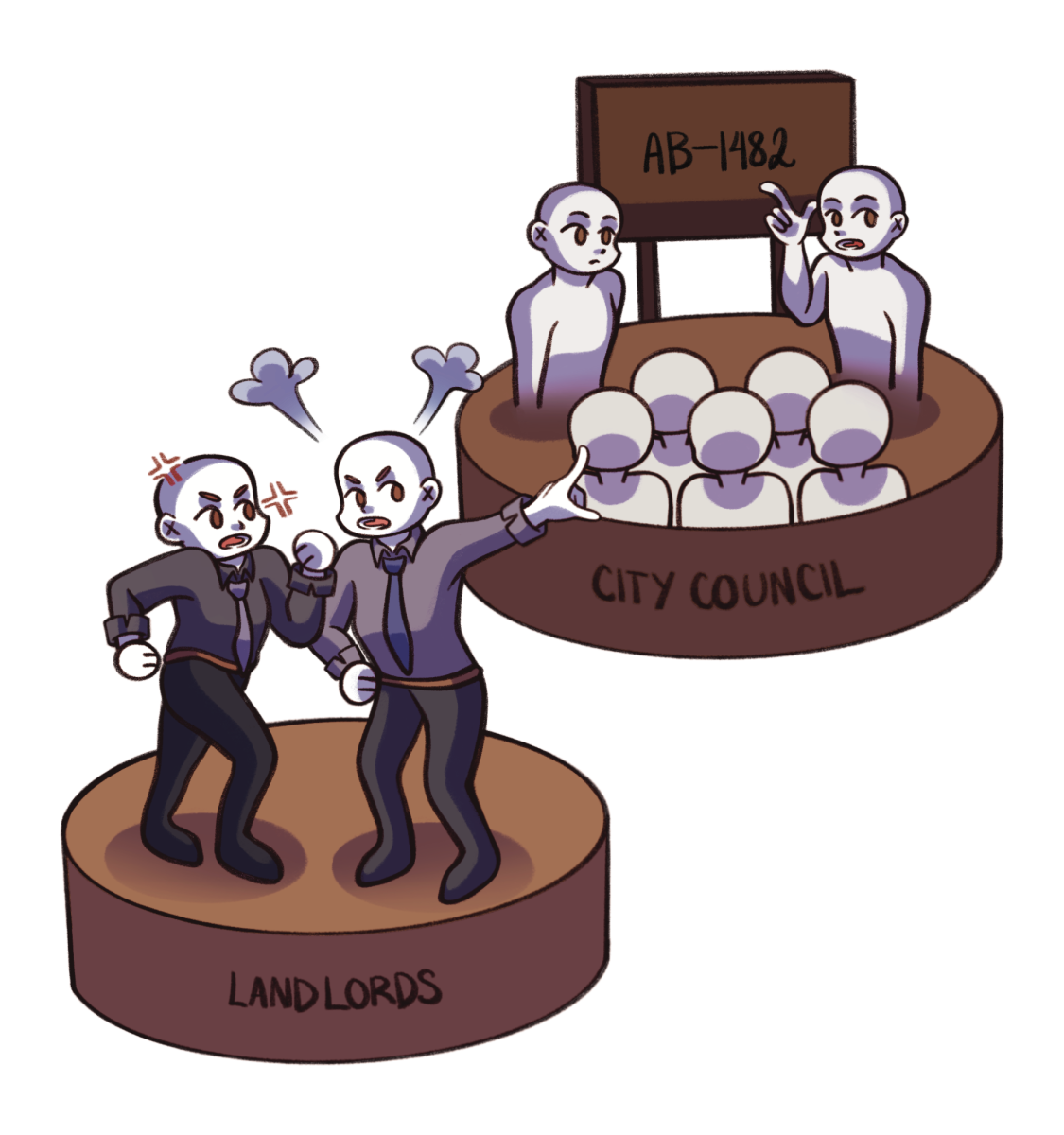A law that will extend renter protections beyond the scope of current state law was passed by City Council at its Aug. 21 meeting.
The new law will increase the number of tenants eligible for eviction protections by reducing the required protection period in the city for renters from 12 months to six.
Katie Causey, a board member of the Palo Alto Renters Association, said the law closes loopholes in state law and prevents landlords from taking advantage of poorly written policies.
Assembly Bill 1482, passed in 2019 by the state, contains many renter protections, including “just cause,” which requires a landlord to have a legitimate legal reason for evicting a tenant, preventing arbitrary evictions.
But it also states a renter must be in a space for 12 months before the protections kick in and doesn’t apply to homes constructed in the last 15 years.
Causey, who said she has worked with up to 150 tenants facing eviction, said the renter protections provided by Palo Alto’s law, which is permanent and also governs recently built homes, act as key tools in ensuring the health and safety of renters.
“The expansion of just cause is particularly meaningful to me, because the very first case I worked on at PARA was a family being evicted without cause,” Causey said. “The reality is, evictions happen every day in Palo Alto, and that’s a direct result of the fact we just don’t have a lot of renter protections in Palo Alto.”
But Marcus Wood, the Senior Vice President of Operations at Kylix Enterprises, a local property management company, said Palo Alto’s new law is toothless.
Wood said eviction isn’t common in Palo Alto, and landlords never arbitrarily evict tenants.
“It doesn’t protect anybody anymore,” Wood said. “It’s a solution in search of a problem.”
According to Causey, just under 50% of residents in Palo Alto are renters, while around 60% of PAUSD families rent.
“A lot of people move to Palo Alto for the access to the schools,” Causey said. “And if a family faces eviction, that can be incredibly devastating.”
Yan Zhang, a parent of a Paly student, said her life is not currently impacted by the new law, since she doesn’t intend to break her family’s lease agreement but could see how the new law could be hurtful to her in the future.
“I was actually thinking when I might buy a house and need to rent it out,” Zhang said.
“For me, I was more worried about the restriction and the extra burden that’s put on the landlord.”
Jennifer Liu, President of the Bay Area Business and Housing Network, said the main problem with “just cause” for landlords is evicting problematic tenants, who are increasingly hard to evict even if they have violated the lease agreement.
“One of my friend’s tenants used a knife to threaten neighbors,” Liu said. “Everybody knew about it, but since the tenant denied it, there was nothing we could do without evidence.”
Additionally, Liu said the pandemic only aggravated the problem for landlords.
“Since the pandemic, there is a law called the Eviction Moratorium, which states that landlords cannot evict tenants, even if they do not pay rent,” Liu said. “In one of my rentals in San Francisco, I haven’t collected a single penny from the tenant since 2020. I lost tens of thousands of dollars, and I still need to pay my mortgage and property taxes.”
San Francisco’s Eviction Moratorium expired on Aug. 29.
Regardless, Liu said in the long run, Palo Alto’s law is bad for both tenants and landlords, because it disincentivizes new landlords from entering the market.
According to Liu, the solution to the Bay Area housing crisis is not in better tenant protection laws. In addition, Wood said, due to the lack of financial incentives, only one private developer has developed housing in Palo Alto since 1990.
“Let’s look at San Francisco, which has a very draconian rent control,” Liu said. “There are 61,000 vacant units in San Francisco, because homeowners do not dare to rent them out. And as a result, San Francisco’s rent is higher than anywhere else in the Bay Area.”
But Causey said the personal cost of eviction is too great for cities not to regulate landlords.
“I’ve spent late nights looking for social workers for seniors days away from losing their home,” Causey said. “I’ve been there when a tenant says they can’t find an apartment and also can’t continue to live with their abusive spouse. I’m just really glad to see the city take the issue of evictions as seriously as they are.”


